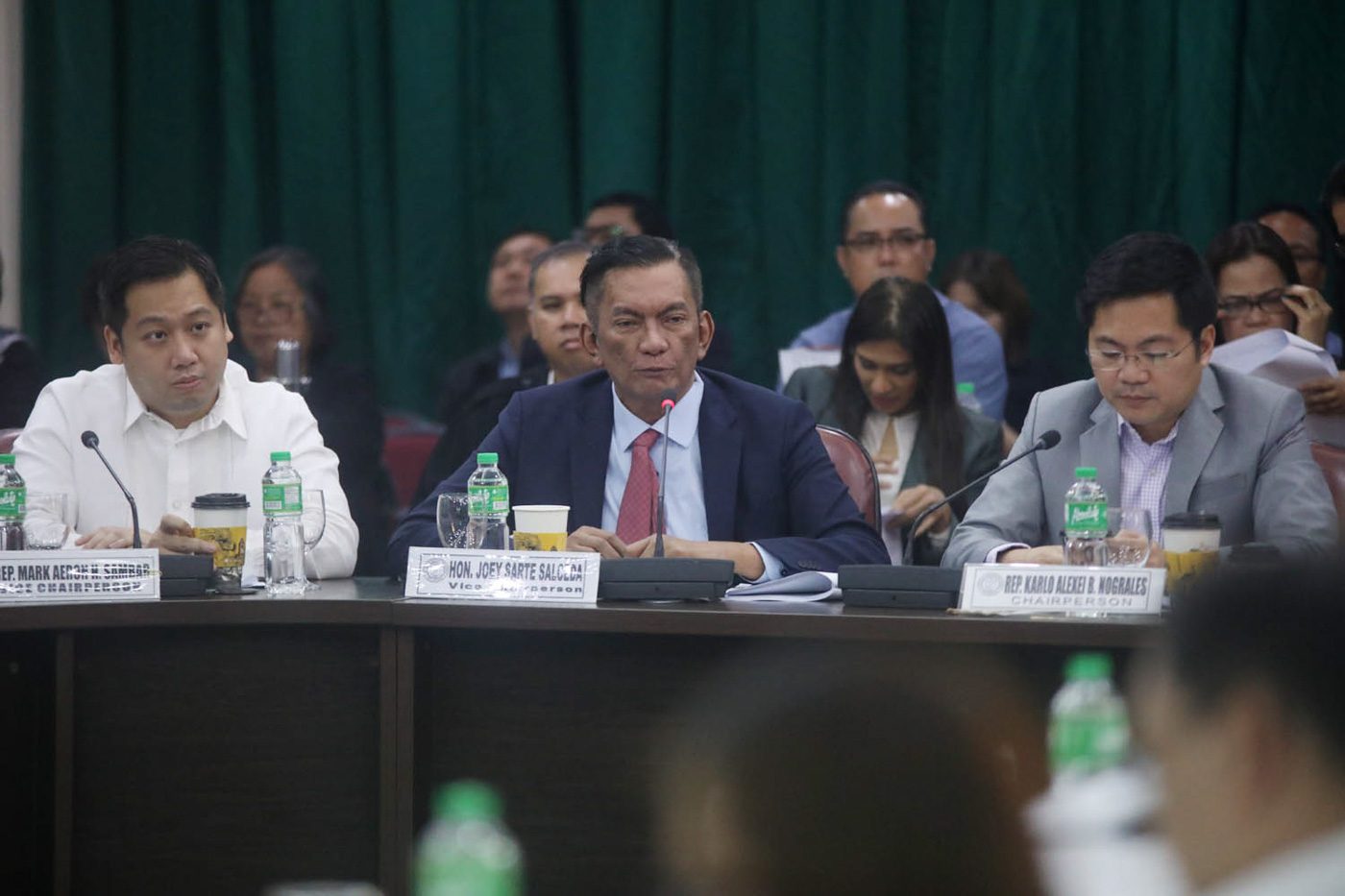SUMMARY
This is AI generated summarization, which may have errors. For context, always refer to the full article.

MANILA, Philippines – Albay 2nd District Representative Joey Salceda said the government only has itself to blame for the country’s inflation rate reaching 6.4% in August.
“Ultimately, the 6.4% was really due to the fact that we did little or nothing. We can no longer blame market opportunists, profiteers, and rice hoarders,” said the economist turned lawmaker in a statement on Wednesday, September 5.
According to the Philippine Statistics Authority, the 6.4% inflation rate in August is the fastest since March 2009, when inflation hit 6.6% during the administration of then-President Gloria Macapagal Arroyo, now Speaker of the House of Representatives.
Annual increases were observed in food and non-alcoholic beverages (8.5%), alcoholic beverages and tobacco (21.6%), furnishing and household equipment (3.5%), health (4%), restaurants and miscellaneous goods and services (4%), and recreation and culture (2.4%).
Despite the high inflation rate in August, Arroyo said she trusts the administration of President Rodrigo Duterte is “doing what it can” to address the problem.
What did the government do right? Salceda said the “only notable” measure the government did to address inflation was to increase interest rates by 50 basis points (bps). (READ: Bangko Sentral hikes interest rates again over high inflation)
But he noted it would take a lag of 6 to 18 months “for monetary action to gain traction in containing aggregate demand.”
Salceda said the main driver of inflation remains to be food.
“But what is more worrisome is that it would reverse gains in poverty reduction and hunger mitigation since the main culprit is food inflation, which surged by 8.5%. Thus, the inflation of the poor (lowest 30%) is estimated at 7.4%,” he said.
Salceda identified 5 other main drivers of inflation:
- “Supply difficulties” due to two weeks of heavy rainfall especially in Luzon
- Unabated increases in rice prices with “weak” intervention from the National Food Authority (NFA)
- Elevated meat prices, especially for chicken
- High prices of fish
- Slight increase in pump prices due to peso weakness and higher global oil prices
- Peso weakness from P53 in July to P53.40 in August
What measures does he propose? In order to curb soaring inflation, Salceda suggested that the NFA increase rice importation and conduct targeted distribution to rice-deficit areas and food-deficit populations.
He reiterated his suggestion to reduce tariffs or taxes on meat products, a proposal that Arroyo disagrees with.
Salceda also said the Department of Trade and Industry must coordinate with manufacturing and trade associations “for self-restraint” via the suggested retail price system.
He added that tax increases should be deferred.
“BSP needs to be abreast of the cycle to contain price expectations…. Another 50 bps policy rate adjustment may be needed since [the] 2018 average [is] likely to be 5.2% versus the recent adjusted target of 3.5% or a differential of 160 bps,” said Salceda.
He also suggested a number of medium-term measures to help address inflation, such as rice tariffication to ease prices by 2019 and increasing public investments in agriculture, including giving the Department of Agriculture a higher budget.
Duterte’s economic managers pointed to the agriculture sector’s problems as the main reason for the inflation surge in August. – Rappler.com
Add a comment
How does this make you feel?
There are no comments yet. Add your comment to start the conversation.